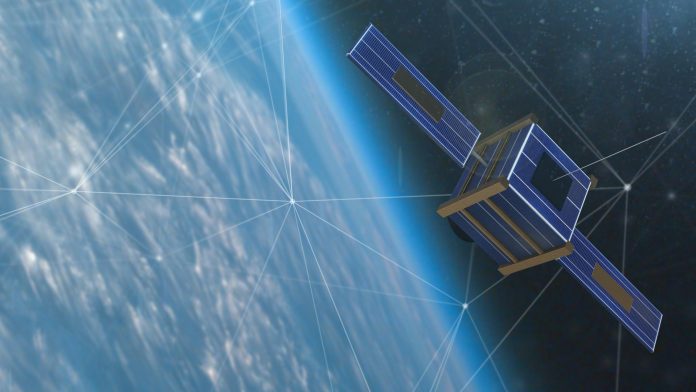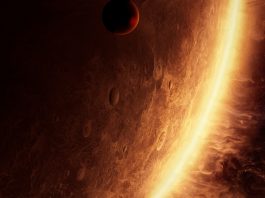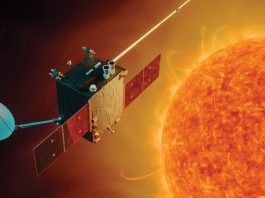NTU Singapore startup – Aliena – has successfully deployed a compact and fuel-efficient satellite engine into space.
Scientists from Aliena, a tech spin-off from Nanyang Technological University, Singapore, have developed and deployed a nanosatellite equipped with a fuel-efficient engine into space.
The novel nanosatellite was deployed from the SpaceX Falcon 9’s Transporter-3 mission which launched from Cape Canaveral Space Force Station in Florida.
Developing a satellite engine
The satellite engine, which is a Hall effect thruster whereby ions from the propellant are accelerated by an electric field, was designed, and built by Aliena.
In comparison to contemporary satellite engines of its kind, the novel engine expends a mere fraction of power for its operation.
Staying in orbit
Thrusters are an essential component of satellites, as they are necessary to make occasional thrust firings to ensure orbit is maintained. Without the thrusters, the satellites would re-enter Earth’s atmosphere, thus ending their mission. This is a consequence of the resistive force or drag from the thin atmosphere that they encounter.
Traditionally, most satellites weighed a few thousand kilogrammes and were massive, measuring as tall as several storeys. However, over the last 20 years, nanosatellites have been growing in popularity, which has resulted in the advancement of smaller, lighter, and more fuel-efficient engines that maintain the functionality of satellites while in space.
In comparison to current Hall thrusters that necessitate approximately a thousand watts to hold larger satellites in orbit and are incompatible with smaller spacecrafts, Aliena’s engine can ensure a nanosatellite is operational with less than 10 watts of power. The whole propulsion system fits into a 10cm-by-10cm-by-10cm cube and weighs less than two cartons of milk, which is considerably less than its traditional counterparts.
The role of plasma
Frequently described as the fourth state of matter, plasma and its physical properties play a crucial role in Aliena’s engine. The NTU start-up taps on plasma propulsion to enable small satellites to navigate through space with force from as little as a few micro-Newtons, which is equivalent to the amount of force an ant needs to take a few steps forward.
Dr Mark Lim Jian Wei, Co-founder and CEO of Aliena, and Adjunct Principal Investigator at the Energy Research Institute at NTU commented: “As the space industry continues to grow exponentially and rapidly, Aliena aims to address a growing demand for in-space mobility through our plasma engines. Once a nascent market, we have seen a sudden surge in the number of space-tech companies being incorporated to capitalise on the cost effectiveness of small satellites and accessibility to space to deploy their own constellations that will impact terrestrial and extra-terrestrial businesses.”
Mr George-Cristian Potrivitu, Co-founder and Chief Technology Officer of Aliena, and NTU PhD candidate, added: “Aliena is focused on developing cutting edge satellite propulsion systems based on plasma, and this mission definitely marks a very important milestone for the private space ecosystem in Singapore, which is rapidly emerging from its nascent phase. With the launch, we will prove that our system functions well in space on a satellite, which is important as we continue to expand our customer base. We want to enable their emerging operations and to help catalyse new business opportunities in space through the provision of unprecedented mobility to small spacecraft, allowing them to execute the most challenging of missions.”
Nanosatellite capabilities
Dr Lim said: “We hope the successful launch of the nanosatellite powered by our new engine will pave the way for emerging small satellite operations to be carried out with reduced power consumption, which also improves the usage of a satellite’s capacity.”
Subsequent to this mission, Aliena intends to implement microsatellite-class engines (MUSIC) on a larger satellite platform in 2023 that will be initiated onboard Orbital Astronautic’s ORB-12 Strider mission.
Mr David Toh, CEO of NTUitive, concluded: “Aliena has achieved a very significant milestone in their product development, and we are pleased as an organisation to have supported the company in all its endeavours to be a successful startup. Aliena is a great example of how university research can be translated and brought to the market rapidly through our funds and support programmes, where we help accelerate the commercialisation process through support in areas such as Intellectual Property and office space, as well as to groom entrepreneurs and pair them up with technology most suited for their businesses.”









